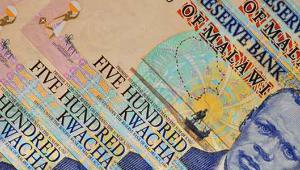By Nick Mann | 25 July 2012
The UK government was right to suspend aid payments made directly to Malawi’s exchequer last year but should now reinstate the support to help the country’s new president pursue a reform programme, MPs said yesterday.
The UK Department for International Development stopped its general budget support to the southeast African country in July 2011 in response to a political and economic crisis created by then-president Bingu wa Mutharika. The UK’s high commissioner had also been expelled from Malawi for criticising Mutharika. Following the suspension, UK aid levels did not drop, but were directed through alternative routes such as specific government departments.
However, the UK House of Commons’ international development select committee found that since Mutharika’s death in April 2012, his successor, President Joyce Banda, had begun to reverse many of his policies.
Malawi’s currency had been devalued and the new government had said it intends to repeal many of the previous administration’s authoritarian measures. The UK MPs said that subject to the continuing progress of economic reforms, the DFID should reinstate general budget support, which was ‘likely to be the most effective way of providing support to Malawi’, one of the world’s least-developed nations.
‘It is important to avoid continuing uncertainty, especially given that other donors are likely to follow the DFID's lead,’ the MPs said. ‘The DFID currently expects to make a decision by the end of 2012, but we would urge it to make its decision as soon as possible.’
In particular, the committee stressed the importance of support for the Malawian government’s farm input subsidy programme, which makes seeds and fertiliser available to smallholder farmers at subsidised prices.
The chair of the committee, Sir Malcolm Bruce, said: ‘Malawi remains one of the poorest countries in the world, so achieving food security is obviously challenging.’
The DFID was also urged to consider providing its aid in Malawi through cash transfers – small cash payments provided directly to the poorest. The UK already does this in a number of countries, including neighbouring Zambia.
The progress being made by the new Malawian government also resulted in the International Monetary Fund announcing on Monday that it would lend the country an additional $156.2m over the next three years.
The money, which will include an immediate loan of $19.5m, is aimed at creating economic stability, including increasing Malawi’s international reserves to protect it against external shocks as well as backing reforms to improve the investment climate and promote sustained, inclusive growth.
Naoyuki Shinohara, deputy managing director and acting chair of the IMF executive board, added: ‘In order to achieve fiscal sustainability, the program includes measures to enhance domestic revenue mobilisation and public financial management reforms to strengthen the budget process and avoid the accumulation of arrears.’












